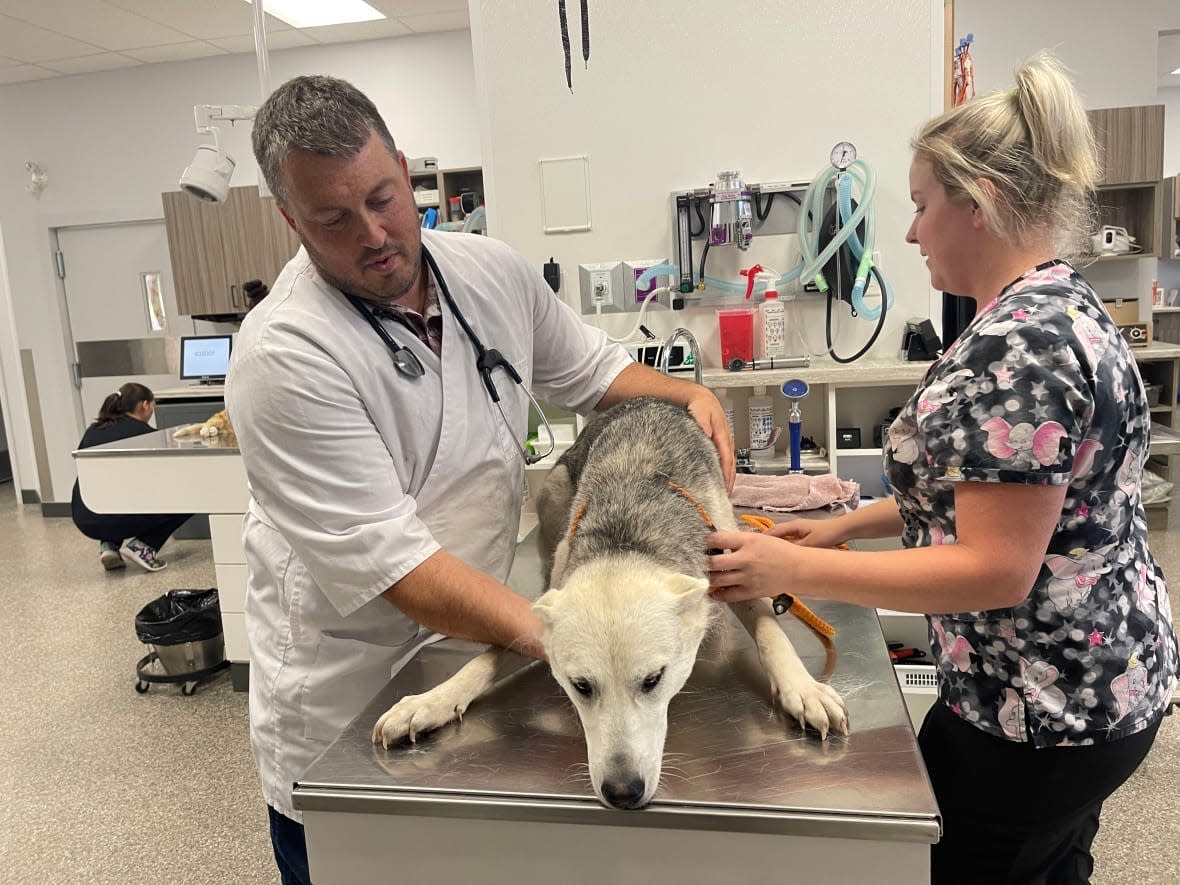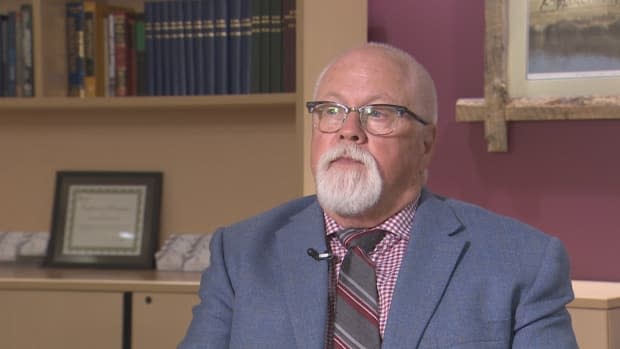Rural Alberta struggling with shortage of veterinarians

Alberta is facing a significant shortage of veterinarians.
According to the Alberta Veterinary Medical Association, there are more than 840 vacancies in the vet industry in Alberta — close to 20 per cent of all veterinarian jobs in the province.
The situation is particularly tough in rural Alberta, where there is high demand for veterinarians for agriculture, making it difficult for those currently working in the profession.
"It can be very hard on the body, on the mental health, on the lifestyle and even the family," said Dr. Josh Lawrence, who practises in Vegreville, about 100 kilometres east of Edmonton.
"It takes a lot of determination. You have to enjoy what you're doing to work with cattle and be in the livestock industry.
"It can be a little bit physical and demanding."
Lawrence said he has to work non-stop over long stretches of time.
"It's exhausting. The job needs to get done, and I take calls, and I do it because I want to provide that for our clients.
"But at the same token, it's hard on us as veterinarians when we do that because it's hard on our family life."
Lawrence attributes the workload to the shortage of veterinarians.
Last August, Lawrence's clinic hired a new veterinarian, completing a search that lasted for four years.
The biggest hurdle, Lawrence said, is finding somebody who wants to work at a rural practice.
"The demanding part of the rural practice is the call, where we don't have that ability to refer to an emergency centre for our large animal patients."
Dr. Melanie Wowk is a farmer and a qualified veterinarian. She and her husband operate Wowk Ranch, a multigenerational cow-calf operation near the hamlet of Beauvallon in east-cental Alberta, and she also works for a pharmaceutical company as a technical services veterinarian.

She says that there is a real problem with veterinary coverage in some areas of Alberta.
"There are definitely areas of the province that are very, very underserviced."
The thin coverage could lead to negative repercussions for animal welfare, if farmers have difficulties obtaining antibiotics prescriptions for their animals, or when cows require surgical interventions, she said.
"As far as surgical intervention, if you can't find a veterinarian - there's one answer, and it's one that most producers will try absolutely everything in their power not to have to do," she said.
The shortage of veterinarians isn't leading to negative repercussions for animal welfare right now, said Dr. Darrell Dalton, the registrar of the Alberta Veterinary Medical Association, but he agreed that some veterinarians in rural Alberta are at a point where they are putting the well-being of animals above their own.
Renate Weller, dean of the faculty of veterinary medicine at the University of Calgary, Alberta's only veterinary school, said that the industry in Alberta is at a "crisis point" and the only solution to it is to increase enrolment.
At the moment, the faculty of veterinary medicine at the University of Calgary is accredited to enrol 50 students per year. The university intends to double the number of students and is constructing a new building to accommodate the increased number of students.
In order to entice kids from rural areas into joining the profession, the veterinary faculty is delivering an outreach program into rural communities, which includes visiting schools and promoting veterinary medicine as a career, with the hopes that some of the kids will become veterinarians and will practise in rural areas.
Dalton said it's important to ensure that students who live in cities need to be made aware of potential opportunities in rural Alberta.
"We just need to expose some of these urban kids to the great way of life of living in a small town in rural Alberta," he said.
"There's tremendous opportunities. And when you think of it, most of our smaller communities are not that small anymore. Most of the amenities that you would look for in the big city are available in smaller communities."


